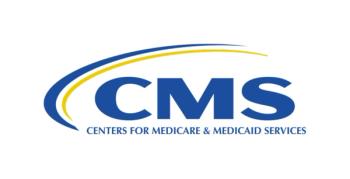
Policy
Latest News
Latest Videos

Podcasts
More News

The Ensuring Community Access to Pharmacist Services (ECAPS) Act of 2025 (H.R. 3164) aims to ensure vital pharmacy services and access to care for underserved communities.

The National Comprehensive Cancer Network (NCCN) policy summit highlighted the need for improved communication between oncology and primary care to enhance cancer survivor outcomes and care transitions.

The FDA's decision to appoint Vinay Prasad, MD, MPH, to head its Center for Biologics Evaluation and Research (CBER) raised concerns over regulatory scrutiny as the biotech market dropped.

Enrollment in Medicare coverage without out-of-pocket protections was associated with a higher likelihood of reporting cost and access barriers to care.

The goal of the proposed bill is to “make prescriptions affordable again” in the US.

Asembia’s AXS25 Summit covered a variety of relevant topics in the pharmaceutical industry, from the effects of the new administration to how artificial intelligence (AI) is reshaping the patience experience.

The 2025 Community Oncology Conference empowered attendees with insights on advocacy, innovation, and practical strategies for enhancing community cancer care.

To mark the 30th anniversary of The American Journal of Managed Care (AJMC), each issue in 2025 includes reflections from a thought leader on what has changed over the past 3 decades and what’s next for managed care. The May issue features a conversation with John Michael O’Brien, PharmD, MPH, a member of AJMC’s editorial board and the president and CEO of the National Pharmaceutical Council. This interview has been lightly edited for clarity.

An executive order signed on Tuesday, March 15, necessitated a change in plans for this panel discussion from the 2025 Community Oncology Conference, with the assembled experts, moderated by Ted Okon, MBA, executive director of the Community Oncology Alliance, speaking to how the order would reverberate across the community oncology space.

Mingyang Song, MBBS, ScD, expands upon the link between ultraprocessed foods and cancer risks, emphasizing the need for better dietary choices and further research.

Improving relationships between pharmaceutical makers, health systems, patients, and insurers can help to lower the price of health care for patients, according to John Michael O'Brien, PharmD, MPH.

Kimlin Tam Ashing, PhD, explores how strengthening community engagement can enhance cancer research and inform more effective policy development.

At Asembia’s AXS25 Summit, industry experts explored how pharmacy is evolving to meet rising patient expectations and navigate a shifting health care environment.

Evaluating the impact of the Inflation Reduction Act (IRA) will require real-time data and effective therapy metrics, explained H. John Beardsley, MBA, of CoverMyMeds; and Fauzea Hussain, MPH, of McKesson.

With artificial intelligence (AI) capabilities freeing up workers and driving billions in gains, pharmacy may soon see a 75% workload drop.

Early actions by the new administration signal major changes in health policy, taxes, and pharmaceutical pricing.

Kimlin Tam Ashing, PhD, of City of Hope National Medical Center, emphasizes the vital role of community engagement in cancer research, enhancing trust and communication between scientists and communities.

As the Affordable Care Act passed its 15th anniversary this year, Supreme Court Justices continue to deliberate the fate of its preventive services mandate in Kennedy v Braidwood.

The Trump administration is proceeding with probes into the national security implications of pharmaceutical imports.

Asembia's AXS25 Summit will unite more than 8000 key decision-makers to explore pharmacy innovation, artificial intelligence, policy, and patient care from April 27 to May 1 at Wynn & Encore in Las Vegas, Nevada.

Following the Trump Administration’s mandate to cut $2.6 billion in NIH contracts, the Women’s Health Initiative shares HHS will close its regional centers in September.

Accountable care organizations (ACOs) are increasingly playing the role of data sleuths as they identify and report trends of anomalous billing in hopes of salvaging their shared savings. This mission dovetails with that of CMS, which under the new administration plans to prioritize rooting out fraud, waste, and abuse.

Jaime Almandoz, MD, MBA, of UT Southwestern Medical Center, speaks on results of a study that investigated tirzepatide uptake trends in commercial claims data.


The case, which has implications across preventive care, is now an argument between Robert F. Kennedy Jr, the Secretary of HHS, and Braidwood Management.

















